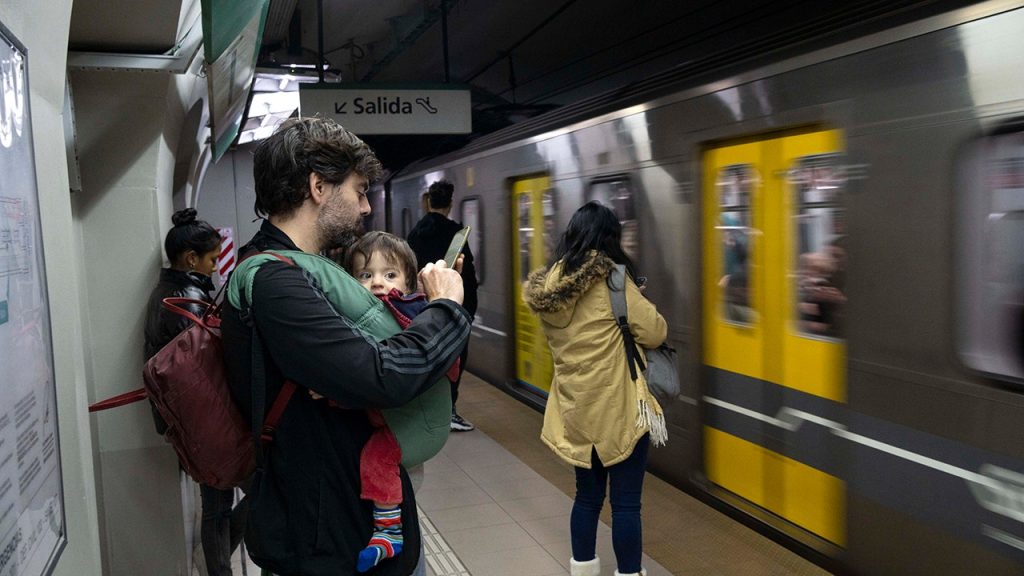Commuters in Buenos Aires were hit by a 360% increase in subway fares as part of President Javier Milei’s harsh budget austerity campaign in Argentina. The sudden increase came after a judge lifted an order blocking the fare hike, leading to outrage among residents who were already struggling with a cost of living crisis in the country. Many commuters complained about the deteriorating service of the subway system, despite having to pay significantly more for it.
Public transportation fares are a sensitive issue in Latin America, where inequality is deeply rooted. The increase in subway fares in Buenos Aires has sparked anger and frustration among residents, with some comparing it to past social unrest triggered by similar price hikes in other countries. Milei’s austerity measures, aimed at rebuilding Argentina’s credibility with foreign investors and taming hyperinflation, have led to inflation rates reaching 289% annually, making life harder for ordinary Argentines.
The inflationary spikes in subway fares are part of a broader trend of cuts in public spending on subsidies for state companies in Argentina. Milei’s deregulation and austerity measures have led to higher costs of living and pushed the economy into recession. The increase in subway fares is the third time this year, as Milei cuts federal subsidies for public transportation, leading city governments to raise costs incrementally. The cost of buses and trains in Buenos Aires has also risen steadily, affecting residents who rely on public transportation for their daily commute.
Municipal officials in Buenos Aires have announced further increases in subway fares, with a planned price hike on June 1 and then again on August 1, in an effort to minimize the impact on riders’ pockets. The cheap fares, long considered a boon for residents, especially those living far from the city center, are now seen as an unsustainable cost by the government, given the country’s current financial crisis. The heavily indebted government is struggling to afford subsidies for basic commodities, including public transportation, as the economy faces one of its worst crises in two decades.
The Buenos Aires underground transit system was once a symbol of the city’s early 20th-century wealth but has since fallen into disrepair. The lack of investment in the subway system has contributed to a decline in service quality, making the recent fare increase even more painful for commuters. The government’s decision to increase subway fares, along with other austerity measures, has sparked criticism and protests in Argentina, as residents struggle to make ends meet in the face of rising inflation and economic instability. The impact of Milei’s austerity plan on public transportation fares is just one aspect of a broader economic crisis facing the country.













